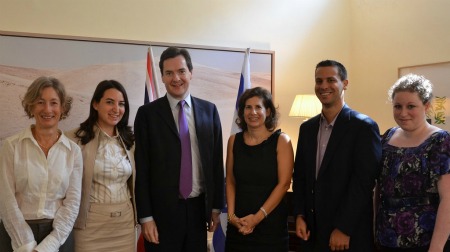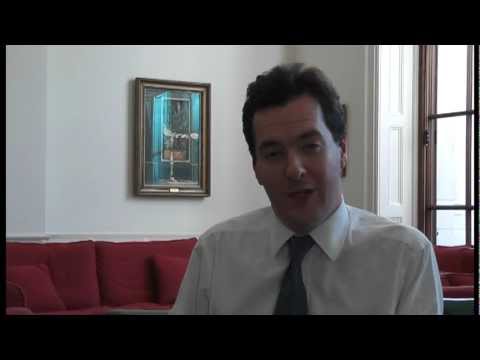The British Embassy’s new High-Tech Hub seeks to join Israel’s R&D strengths with UK marketing and design expertise via business partnerships.

Almost every young startup entrepreneur from Israel has the same dream and trajectory: Develop a fledgling high-tech company with some friends from the army, get seed funding, set up a base in America — usually Silicon Valley — secure bigger funding, grow, market and then sell the business for a killing.
But California is a day away by plane, and it’s nighttime there when the sun is shining in Israel. So Israelis are learning that one way to avoid red-eye flights and the angst of doing business a world away is practically on Israel’s doorstep — in England.
Last month, the UK Ambassador to Israel, Matthew Gould, launched a major project to help align business and economic goals between the United Kingdom and Israel. Since he accepted his post in Israel about a year ago, this new High-Tech Hub at the British Embassy has been taking about 30 percent of his time, says Carmel Gerber, director of the new six-person Hub team at the UK Embassy.
At the end of October, the UK-Israel Hub inaugurated its partnering network to great fanfare at Gould’s home in a Tel Aviv suburb. Chancellor of the Exchequer George Osborne sent a video message of support for the program, calling for an increase to the “export of expertise and capital” from Israel into Britain.
Gerber tells ISRAEL21c: “The ambassador has identified a gap between commercial activities at the embassies and possibilities of partnerships between Israel and UK companies. Israel is strong at R&D, and UK companies at marketing and design. This blends a strong partnership,” adds Gerber, who worked for many years in the high-tech scene in California and Israel.
“We have found a lot of great people to help us as advisers, both in the UK and here — everyone from investors to startup service providers.”
Breaking into strong European markets
She says the partnership could fuel British economic growth by creating jobs in the UK, while fulfilling Israelis’ desire to innovate. And the alliance could also break down lingering stereotypes.
“A lot of people in the UK, when they think about Israel, think about the conflict. But Israel is a powerhouse of technology and a lot of people there don’t know that. A lot of Israelis aren’t aware of the strength of the UK and European markets,” she adds.
The Hub also highlights opportunities to do business with Israeli and Palestinian Arabs. As part of the three-day trip to Israel shortly after the Hub kick-off, the UK minister for universities and science led a delegation that met with Palestinian high-tech entrepreneurs in Ramallah.
http://www.youtube.com/watch?v=EThh4zyUjyE
Launching a product in the UK provides a very good test market of about 50 million people, with 700 million in the European zone, Gerber points out. That’s more than double the population of the United States.
While it will not provide funding, unlike the BIRD Foundation that fosters business between America and Israel, the new UK-Israel Hub will facilitate negotiations between companies and investors, and will encourage partnerships between Israel and the UK.
At first, Gerber anticipates educational trips so the Brits and Israelis can get to know each other’s strengths and opportunities a bit better. Other goals are to encourage investors to set up R&D facilities in Israel to take advantage of its highly trained engineers and workforce skilled in communicating in English. Barclays Capital already has done this.

On October 31, Britain and Israel established a joint fellowship exchange in the area of regenerative medicine under the umbrella of BIRAX – the Britain Israel Research and Academic Exchange Partnership in Regenerative Medicine. The first major UK-Israel regenerative medicine conference is being held at Ben-Gurion University of the Negev.
Clean-tech a hot area for collaboration
Israel, Gerber points out, provides a lot of incentives including tax breaks for foreign companies. The Hub will help outline the playing field, show where those opportunities lie and help navigate the business worlds in both countries. Only a two-hour time difference separates England and Israel.
“There is private investment in the UK, but there are also the public markets,” Gerber notes. “We will educate about the AIM [London Stock Exchange]. Until now the end game for Israelis has been the NASDAQ, but given all the new regulations, the AIM is a much better option.”
Among the focus areas will be clean technology development, an imperative for countries around the world and a field in which Israel is a clear winner.
The Israeli startup TaKaDu is already providing online water monitoring solutions in London, and energy efficiency lighting company Metrolight is another Israeli company doing business in the UK.
“There is so much clean-tech innovation coming out of Israel,” says Gerber, “and because the utilities are privatizing they are hungry for new technology.”













